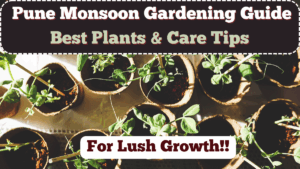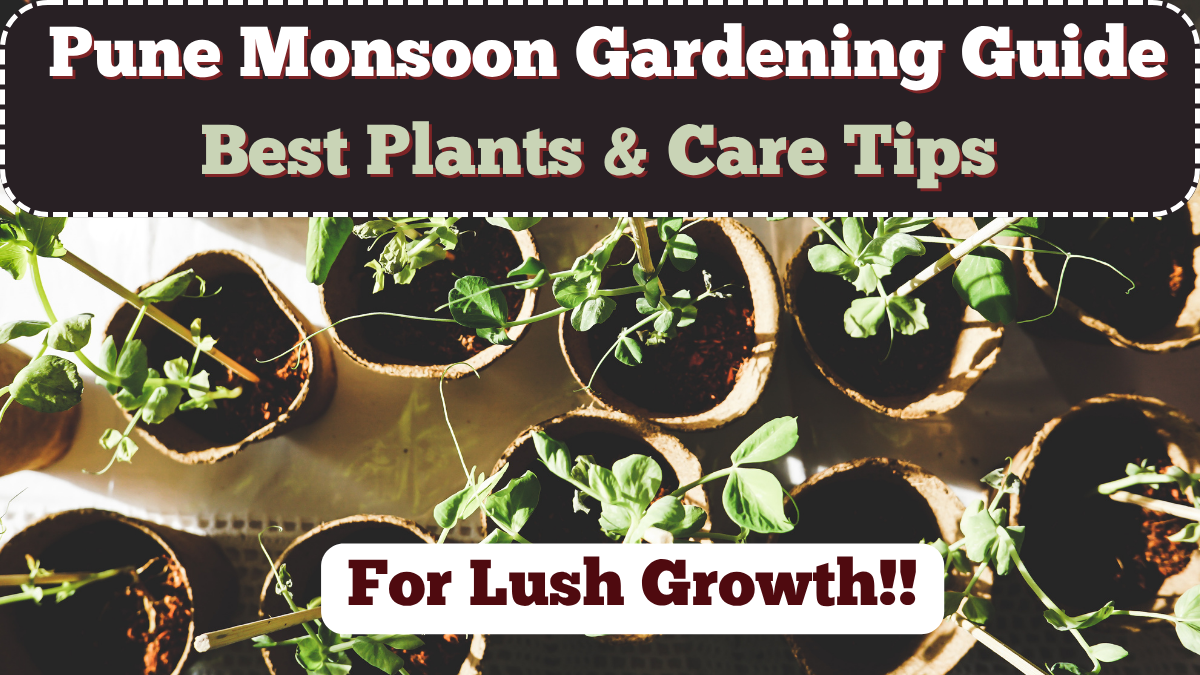With the arrival of the monsoon season, Pune Monsoon Gardening Tips 2025 have become a hot topic among urban gardeners and homeowners. Pune’s high humidity, moderate rainfall, and cool mornings create a unique microclimate that both nourishes and challenges garden enthusiasts. Knowing what to plant, how to protect your greens, and how to maintain the soil is key to enjoying lush, healthy growth throughout the rainy months.
Whether you’re a beginner starting with a few pots on your balcony or managing a full backyard garden, adapting your care routine to the monsoon season is essential.

Best Plants to Grow in Pune During Monsoon 2025
Monsoon is ideal for planting fast-growing, moisture-loving, and pest-resistant plants. Here are top plant choices:
-
Marigold – Bright flowers, naturally pest-repellent
-
Tulsi (Holy Basil) – Thrives in humid conditions
-
Ginger and Turmeric – Perfect for wet, shaded corners
-
Coleus – Colorful foliage that loves the rain
-
Spinach and Fenugreek – Quick-growing leafy greens
If you’re looking for gardening Pune 2025 tips specific to flowering plants, monsoon is also a great time to grow hibiscus, jasmine, and rain lilies.
Soil Preparation and Nutrient Tips
The monsoon season can lead to waterlogging and nutrient leaching if soil isn’t well-prepared. To avoid these problems:
-
Use well-draining soil with cocopeat, compost, and sand
-
Elevate pots to avoid root rot
-
Add vermicompost or cow dung just before rains to enrich the soil
-
Sprinkle Neem cake powder to prevent fungal growth and insects
For home gardens with lawns, aerate the topsoil using a fork tool so the rainwater penetrates deeper and doesn’t stagnate.
Rainwater Harvesting for Garden Use
Rainwater is soft, slightly acidic, and nutrient-rich—ideal for plants. Use barrels or tubs to collect rainwater and use it during dry days between showers. Always:
-
Store water in a covered container to avoid mosquito breeding
-
Filter large debris before storage
-
Water early morning or late evening to avoid rapid evaporation
Common Monsoon Garden Pests & Remedies
With moisture comes the challenge of pests. Here are some common issues and fixes:
| Pest Type | Common Symptoms | Organic Remedy |
|---|---|---|
| Aphids | Sticky residue, curling leaves | Neem oil + soap spray |
| Snails/Slugs | Leaf holes, silver trails | Beer traps, crushed eggshells |
| Fungal infections | Yellow patches, mildew on leaves | Cinnamon powder, dry airflow |
Avoid overwatering—natural rainfall is usually enough. Too much moisture invites unwanted fungal growth.
FAQs
Which plants grow best in Pune during the monsoon?
Plants like marigold, tulsi, coleus, spinach, and turmeric thrive in Pune’s monsoon season due to the humidity and moderate rainfall.
How do I prevent waterlogging in pots during heavy rain?
Use pots with large drainage holes, elevate them using bricks or stands, and mix sand and compost into your potting soil.
Can I use rainwater directly on plants?
Yes, rainwater is excellent for plants. Just ensure it is stored in a clean, covered container and used within a few days.
What’s the best natural pest control during monsoon?
Neem oil, garlic sprays, and crushed eggshells help repel pests like aphids, snails, and slugs organically.
Do I need to fertilize during the monsoon?
Yes, but use mild compost like cow dung or vermicompost. Avoid chemical fertilizers during heavy rains as they wash away easily.
Click here to know more.
